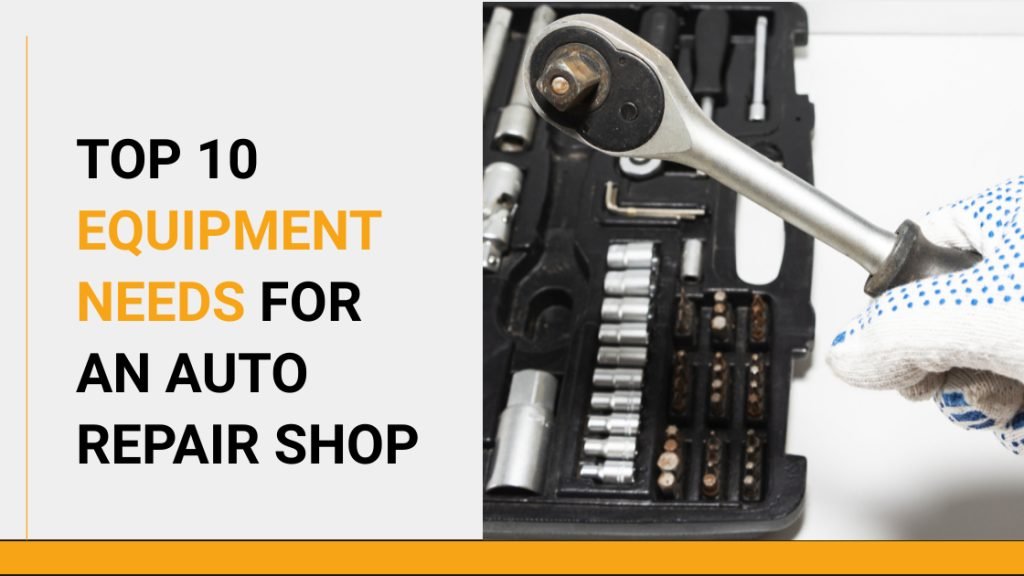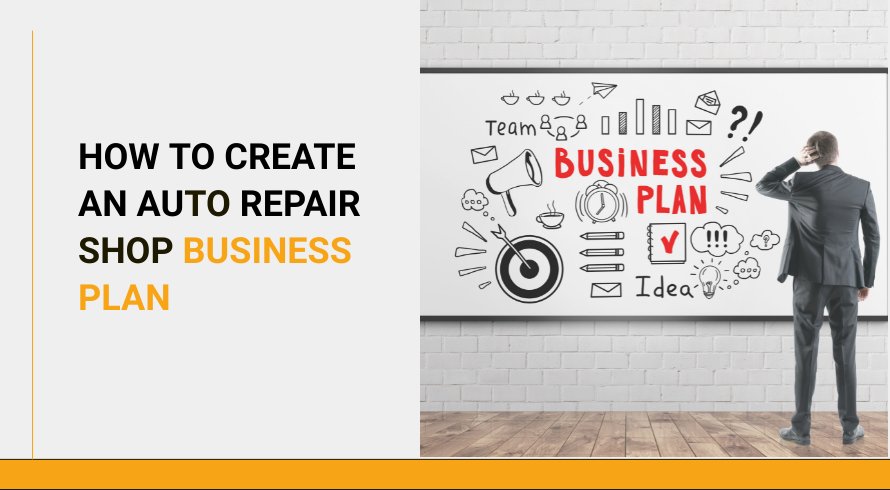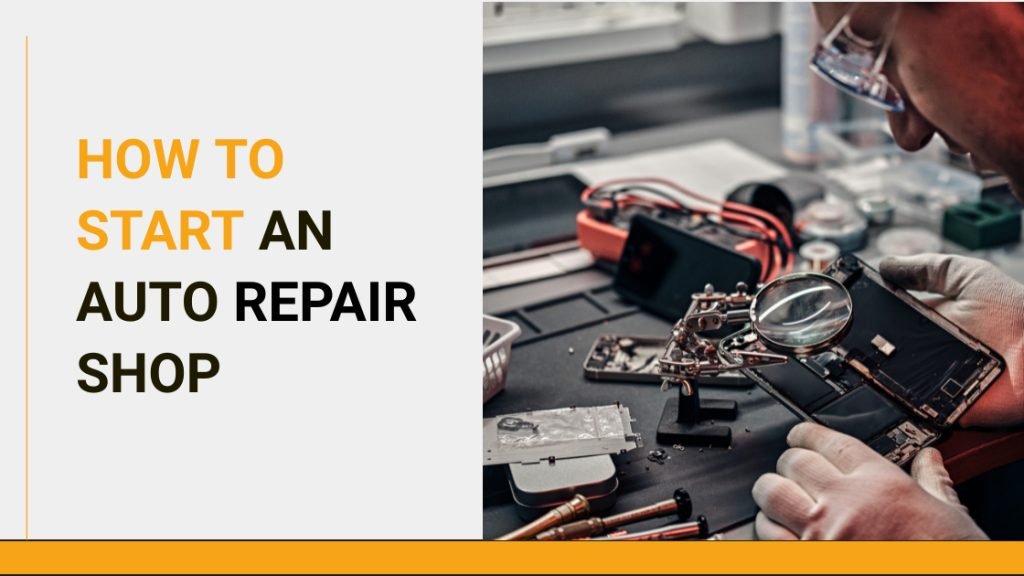If you have run the numbers and are finally ready to start your own automotive repair shop, it’s time to look at your equipment needs. Automotive equipment forms the backbone of every auto repair shop. Your auto mechanics won’t be able to fix cars if they don’t have the right tools and equipment.
But here’s what you need to think about: what types of auto repair equipment will be needed for opening your automotive repair shop? After all, you have limited time and a limited budget. So to help you with that, here is a guide and an auto repair shop equipment list that will help you get started.
When Should You Start Purchasing Automotive Equipment?
While starting your own auto repair shop, you need to know exactly when to invest in equipment. The best time to buy tools for auto repair is after you have mastered your skills and learned how to delegate repair tasks to your auto mechanics.
Once you know that you have the capacity to juggle multiple repair customers, think about putting together your auto repair shop equipment list. Additionally, you also need to ensure that you have the budget and cash in hand to purchase auto repair equipment.
When you have the business pillars and money in place, it is a good time to start thinking about purchasing relevant tools and equipment.
Things to consider before purchasing equipment
However, there are a few other things you should think about before taking the plunge:
Your financing options
Before you go in, make sure you understand you know your budget and financing options. Buying auto repair equipment can be costly, so it’s critical to understand the best financing options for auto repair shops. Consider employing a company line of credit, a short-term loan, or equipment finance for more expensive equipment. Investing in excellent equipment is a good decision because its performance affects customer happiness and productivity.
However, before all of this, make sure you run the numbers and know how much it costs to open an auto repair shop.
The functionality of the equipment and tools
Before purchasing any tool or piece of equipment, analyze its functionality. If you’re working on a car that has sophisticated features like advanced driver assistance systems (ADAS), make sure you get the best tools for the job.
The size and capacity of your auto shop
Some tools are larger and more difficult to set up than others; make sure the automotive repair business you’re purchasing can accommodate them.
Top Equipment Needs For Your Auto Repair Business
As a business owner, you will need the following equipment to make your shop ready for business:
1. Vehicle Lift
Every technician must get under the hood of a car to perform necessary inspections and diagnostics. Lifts will be required at your shop to raise the vehicle to the required height for these procedures.
Match your requirements to the numerous lift models and capacities. There are numerous characteristics to consider. Safety features, 2-post vs. 4-post structure, accessories, and power requirements are all covered.
To ensure the availability of components and servicing, choose high-quality, name-brand lifts. A vehicle lift is a crucial investment for your repair shop because they are built to last for a long time.
2. Air Compressor
Many tools in your shop, including pneumatic hand tools and some auto lifts, will require a dependable air compressor. While choosing an air compressor for your auto repair shop, opt for the largest capacity you can afford to ensure you have enough power to power your shop’s needs – a 60 or 120-gallon compressor is a good example.
3. Jack, jack stands, and pole jacks
Many auto repairs require temporarily elevating vehicles. As a result, a robust floor jack will be used on a frequent basis. Hence, you need to purchase a high-quality, high-capacity jack as well as sturdy jack supports to support the car once it is elevated. Pole jacks can also be used to support axles, lift vehicles, or other raised vehicle components.
4. Oil drain and oil caddy
Services such as changing oil and transmission fluid will require the use of an oil caddy with a large enough capacity to hold the most fluid amount. This will be especially true when your services grow and you begin to work with vehicles on lifts. The use of a standing oil caddy that can reach the lifted car will make the job easier and faster.
5. Battery charger and jumper
As a repair business owner, you might know this better than we do but we will still tell you: many repair jobs will involve dead batteries or charging issues. To conduct these services, your store will require a good battery charger and jumper. You don’t have to spend a fortune, but because you’ll be getting a lot of these cases, it’s critical to show off your best equipment to your consumers.
6. Engine Hoist
Engine hoists are necessary for any garage or shop. An engine hoist will wear several hats in your auto shop, whether it’s rebuilding, repairing, or replacing. Make sure to get one that can handle the largest engine you expect to service.
7. Brake lathe
Yes, you can take rotors or drums to another provider for resurfacing when completing brake jobs. However, this is costly and reduces your time and revenues. Purchasing your own braking lathe helps increase the efficiency and profitability of your brake services. . Make sure to buy a name-brand lathe to ensure that replacement parts are available when needed.
8. Strut compressor
When working on suspension systems, a good strut compressor will come in handy. Having this item will improve your service capabilities and help you run a profitable auto repair business.
9. Air conditioning machine
If you intend to provide air conditioning service (which we recommend you do), purchase an air conditioning machine to make recovering, recycling, and recharging car A/C systems easier. This will also make cleansing and diagnosing A/C systems more efficient and dependable.
10. Press
A decent press will come in handy in your shop for working with bearings, bushings, and bending metal.
Top Service Diagnostic Tools You Should Purchase
Air conditioning service, oil changes, engine repair, and recharging dead auto batteries are all common services. The following tools can help you save time by making your life easier when working on such problems in order to successfully diagnose and repair such problems.
A multimeter and fuses:
Many electrical problems are triggered by a blown fuse. Multimeters simplify your life by testing fuses (and more! ), saving you hours of frustration. To assist you to fix practically any car, maintain a storage box with at least 5, 7.5, 10, 20, and 30 amp fuses on hand.
Wheel alignment equipment:
Another common automobile maintenance service is wheel alignment, which involves adjusting the angles of a vehicle’s tires to reduce wear and keep them aligned to guarantee the vehicle goes straight. The most advanced wheel balancing equipment does more than just examine the tire assembly; it also instructs the technician on how much weight to put to balance the wheel.
Diagnostic tools:
Diagnostic tools such as an onboard diagnostic (OBD) code reader, can save you a lot of time and help avoid risks in repairs by running a proper diagnostic before you start working on a vehicle! It aids in the diagnosis of many systems and features such as the engine, emissions, suspension, and others. Diagnostic scanners not only improve your understanding of the vehicle, but they also aid in upselling maintenance services to your clients.
Basic Tools For Day to Day Tasks
The fundamental toolbox contains the most basic tools and equipment for automotive shops to help you with day-to-day operations and car maintenance. Some of these are standard instruments that are inexpensive and easy to find; you may even have them at home!
Screwdrivers: This may sound obvious, but when working with various car models, it’s critical to cover all of your bases. It’s best to buy a selection of screwdrivers, ranging from flat-head to stubby or thin screwdrivers, to ensure you’re always prepared.
Hammers: Hammers exist in a variety of weights and sizes, each tailored for a specific function. Claw hammers are useful for prying, machinist hammers for swaging metal, and death blow hammers for automotive applications that demand a lot of force.
Wrenches: While a dependable set is recommended, there are two crucial wrenches you’ll need on a daily basis. To begin, torque wrenches are essential for properly tightening any screws and bolts. An oil filter wrench aids in the virtually impossible operation of removing oil filters. (Hint: Adjustable wrenches are the best tool for the job!)
Pliers: Almost every work necessitates the use of pliers, whether it’s a brake job or disconnecting small electric connectors—always it’s a good idea to have some on hand. When working in tight quarters, long-nosed pliers or jaw pliers that can adjust to different sizes are great!
Flashlight: Every vehicle has a difficult-to-reach location that can be too dark to work on once you get there. Having a flashlight on hand is always preferable to risking a poorly done job.
Drain pans: You can never have too many drain pans; simply slide them under any locations that are in spill zones, and they’ll catch any drips and spills, making cleanup that much easier!
While duct tape: Tape is always useful for holding things together, some mechanics neglect to have electrical tape on hand until the need comes.
The most useful cleaning product for your basic toolbox is brake cleaner spray! It aids in the removal of undesirable grease and can be used whenever brake services are performed to guarantee discs are free of any oil or brake fluid.




